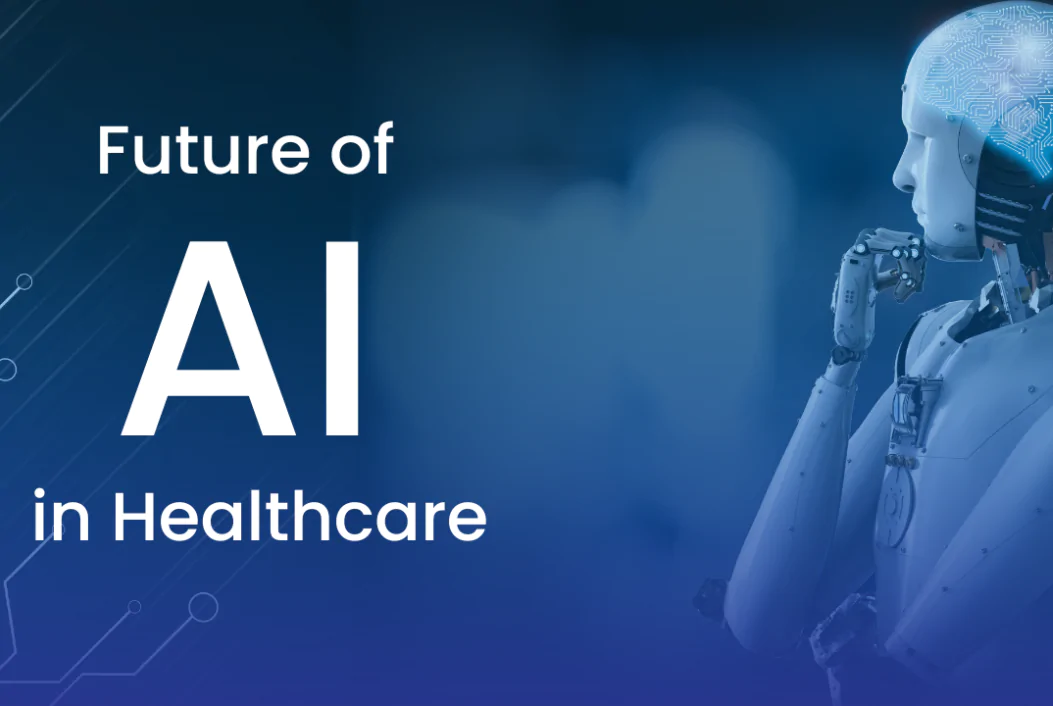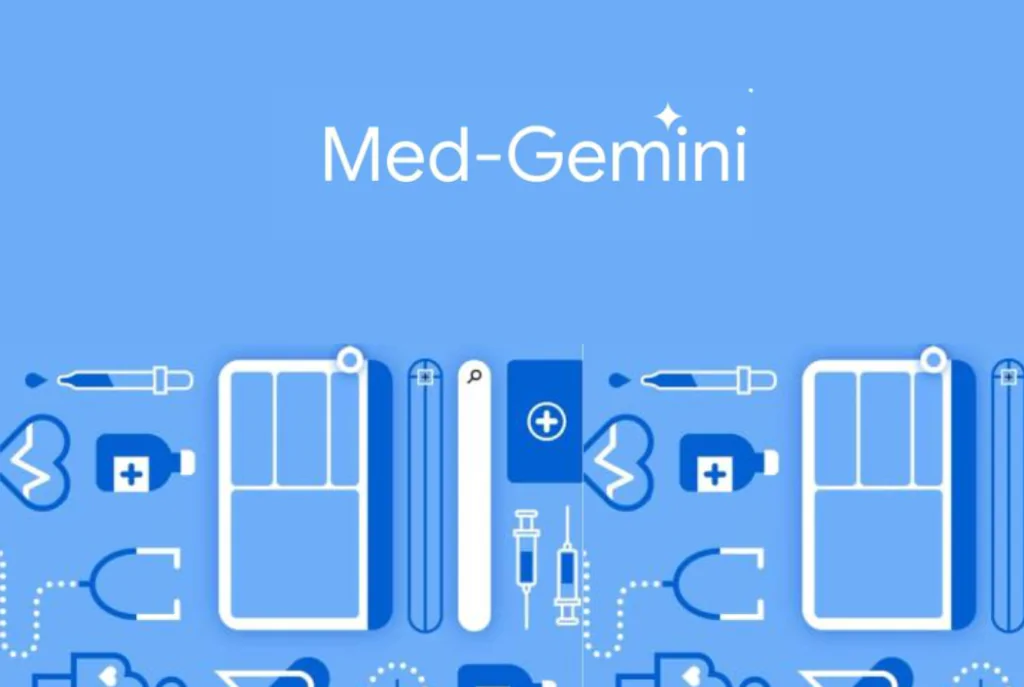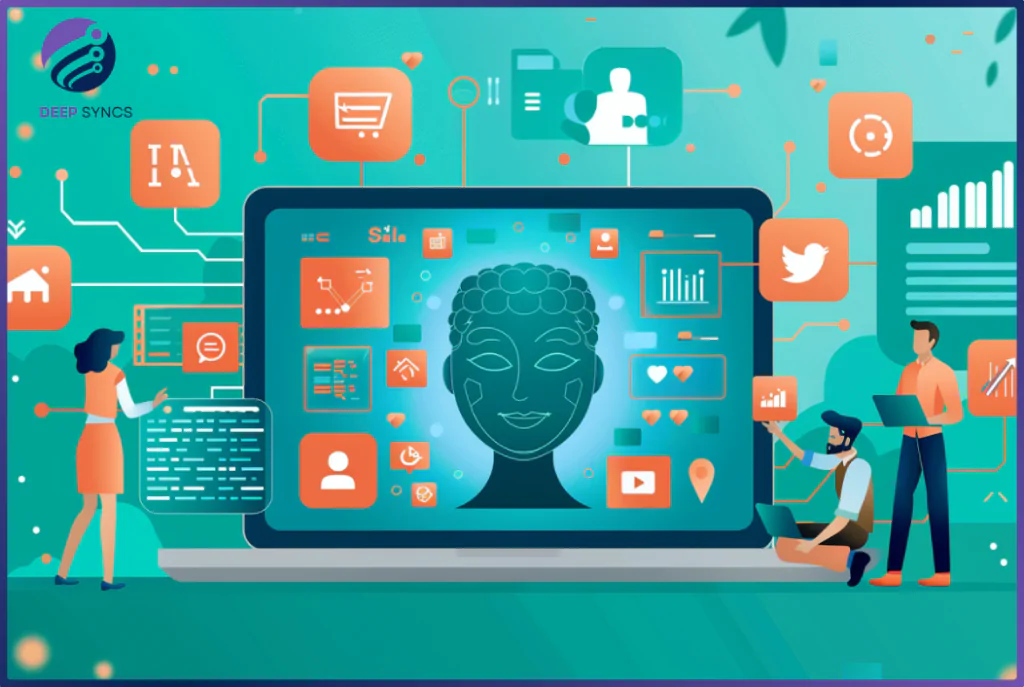In the ever-evolving landscape of artificial intelligence, Google Med-Gemini emerges as a beacon of innovation, promising to transform the healthcare industry. With its cutting-edge technology and groundbreaking features, Med-Gemini represents a significant leap forward in medical diagnosis and treatment. In this blog post, we’ll delve into the advancements, features, benefits, and potential drawbacks of Google Med-Gemini.
Advancements in AI Healthcare

Google Med-Gemini stands at the forefront of AI-driven healthcare solutions, leveraging state-of-the-art algorithms and vast datasets to revolutionize medical diagnosis and patient care. Its development marks a significant milestone in the quest to integrate AI into healthcare systems, offering unparalleled capabilities in disease detection, treatment optimization, and patient management.
Evolution of Med-Gemini
Google launched Med-Gemini, a medical artificial intelligence chatbot. An innovative family of extremely sophisticated multimodal models. Med-Gemini represents a major breakthrough in multimodal comprehension, long-context processing, and clinical reasoning by utilising the strong foundation of the Gemini models. As demonstrated in a recent paper by Google’s research team, this innovation offers remarkable potential for real-world medical applications.
Building on the popularity of the Gemini 1.0 and Gemini 1.5 models, Med-Gemini is specially designed and painstakingly adjusted for use in medical settings. By combining self-training and fine-tuning techniques, these models are optimized to perform well in medical tasks, especially in complex reasoning and using web search data.

Features of Google Med-Gemini
This isn’t your typical chatbot, Med-Gemini. It is capable of having enlightening medical conversations, to be sure, but that is only the beginning. This AI powerhouse outperforms the competition thanks to a number of crucial features, including:
-
Advanced Diagnostic Capabilities: Google Med-Gemini employs state-of-the-art algorithms to analyze medical data, including imaging scans, lab results, and patient records, facilitating accurate and timely diagnosis of a wide range of diseases.
-
Personalized Treatment Recommendations: Med-Gemini generates personalized treatment plans based on individual patient characteristics, such as genetic makeup, medical history, and lifestyle factors, optimizing therapeutic interventions for improved outcomes.
-
Real-time Decision Support: With its real-time decision support capabilities, Med-Gemini assists healthcare professionals during patient consultations by providing access to relevant medical knowledge and evidence-based guidelines, enhancing clinical decision-making.
-
Predictive Analytics: Med-Gemini utilizes predictive analytics to forecast disease progression, identify high-risk patients, and optimize resource allocation, enabling proactive management of patient populations and reducing healthcare costs.
-
Continuous Learning and Improvement: Med-Gemini employs machine learning techniques to continuously learn from new data and feedback, adapting its algorithms and improving its performance over time, ensuring it remains at the forefront of medical AI.
-
Mastermind Medical Data: Med-Gemini is a medical data whiz, devouring and analyzing reams of data, including clinical and recent studies. Its knowledge base is updated constantly through learning, so you are guaranteed to receive the most recent insights.
-
Mastering the Multimodal Exam: Med-Gemini isn’t just text-based like traditional AI is. It provides a more thorough picture of your health by interpreting medical images, including MRIs and X-rays, as well as videos.
-
Your Own EHR Superstar: Bid farewell to long days spent poring over Electronic Health Records. Med-Gemini can quickly pull pertinent data from your medical history, providing physicians with an invaluable advantage in diagnosis and treatment strategizing.
- Beyond Diagnoses: There is much more that Med-Gemini can be used for. It can help with research, treatment planning, and even patient education.
Benefits of Google Med-Gemini
Benefits of Med-Gemini are as follows.
-
Enhanced Diagnostic Accuracy: By leveraging advanced AI algorithms, Med-Gemini enhances diagnostic accuracy, enabling early detection and precise characterization of diseases, ultimately leading to better patient outcomes.
-
Personalized Medicine: Med-Gemini facilitates the delivery of personalized medicine by tailoring treatment recommendations to each patient’s unique characteristics, preferences, and clinical needs, improving treatment efficacy and patient satisfaction.
-
Improved Efficiency: Med-Gemini streamlines healthcare workflows, reduces administrative burden, and optimizes resource allocation, leading to improved efficiency and productivity within healthcare organizations, ultimately benefiting both patients and providers.
-
Proactive Disease Management: With its predictive analytics capabilities, Med-Gemini enables proactive disease management by identifying at-risk patients, predicting disease progression, and recommending preventive interventions, potentially reducing hospitalizations and healthcare costs.
-
Empowering Healthcare Professionals: Med-Gemini empowers healthcare professionals with access to advanced AI tools and real-time decision support, enhancing their clinical decision-making capabilities and enabling them to deliver high-quality, evidence-based care to their patients.
Drawbacks and Considerations
Beside many benefits of Med-Gemini, there are few drawbacks or disadvantages as well. Some of these are as follows:
-
Data Privacy and Security: The use of sensitive medical data raises concerns about patient privacy and data security. Google must ensure robust safeguards are in place to protect the confidentiality and integrity of healthcare information.
-
Algorithm Bias and Fairness: Like any AI system, Med-Gemini is susceptible to algorithmic bias, which may disproportionately impact certain patient groups. Efforts must be made to mitigate bias and ensure fairness in its decision-making processes.
-
Regulatory Compliance: Compliance with regulatory requirements, such as HIPAA in the United States and GDPR in the European Union, is essential for the deployment of Med-Gemini in clinical settings. Google must navigate complex legal and regulatory landscapes to ensure compliance and earn the trust of healthcare stakeholders.
-
Integration Challenges: Integrating Med-Gemini into existing healthcare workflows may pose technical and logistical challenges. Seamless integration with electronic health record systems and other healthcare IT infrastructure is crucial for its successful adoption and implementation.
Real-World Applications and Implications
Med-Gemini’s capabilities have great potential for practical application in a range of healthcare domains. These models show promise for improving biomedical research, medical education, and diagnostic support, from producing summaries of medical visits to supporting diagnostic procedures. According to preliminary assessments, Med-Gemini generates referral letters and summaries that are on par with those written by professionals, highlighting the technology’s potential utility in clinical settings.
Challenges and Future of Health Care

Although Med-Gemini’s progress is encouraging, careful assessment and improvement are necessary prior to implementing these artificial intelligence systems in medical settings where patient safety is at risk. It is still crucial to address issues with fairness, privacy, transparency, and bias mitigation in order to guarantee the ethical and responsible application of AI in healthcare.
Conclusion
Google Med-Gemini represents a paradigm shift in healthcare, leveraging the power of AI to revolutionize medical diagnosis, treatment, and patient care. Its advanced features and benefits hold the promise of improved outcomes, enhanced efficiency, and personalized medicine. However, careful consideration of potential drawbacks and challenges is essential to realize its full potential and ensure ethical and responsible use in clinical practice. As Med-Gemini continues to evolve and expand its capabilities, it stands poised to shape the future of healthcare in profound and transformative ways.
FAQ
1. What is Google Med-Gemini?
Google Med-Gemini is an advanced artificial intelligence (AI) healthcare model developed by Google. It utilizes state-of-the-art algorithms and vast datasets to assist healthcare professionals in medical diagnosis, treatment optimization, and patient management.
2. How does Google Med-Gemini work?
Med-Gemini works by analyzing complex medical data, including imaging scans, lab results, and patient records, using deep learning techniques. It identifies patterns and correlations in the data to enhance diagnostic accuracy, generate personalized treatment recommendations, and provide real-time decision support to healthcare professionals.
3. What are the key features of Google Med-Gemini?
Some key features of Google Med-Gemini include advanced diagnostic capabilities, personalized treatment recommendations, real-time decision support, predictive analytics, and continuous learning and improvement through machine learning.
4. What are the benefits of using Google Med-Gemini?
The benefits of using Google Med-Gemini include enhanced diagnostic accuracy, personalized medicine, improved efficiency in healthcare workflows, proactive disease management, and empowerment of healthcare professionals with advanced AI tools.
5. How does Google Med-Gemini ensure patient privacy and data security?
Google Med-Gemini is designed to comply with stringent privacy and security regulations, such as HIPAA in the United States and GDPR in the European Union. Robust safeguards are implemented to protect the confidentiality and integrity of patient data.
6. What are the potential drawbacks or limitations of Google Med-Gemini?
Some potential drawbacks or limitations of Google Med-Gemini include concerns about algorithmic bias and fairness, regulatory compliance challenges, integration issues with existing healthcare IT infrastructure, and the need for ongoing validation and testing to ensure safety and efficacy.
7. Is Google Med-Gemini available for use in clinical practice?
As of the latest information available, Google Med-Gemini may still be in development or undergoing testing and validation processes. Its availability for use in clinical practice may vary depending on regulatory approvals and healthcare organization adoption.
8. How is Google Med-Gemini different from other AI healthcare models?
Google Med-Gemini distinguishes itself through its advanced algorithms, personalized medicine capabilities, real-time decision support features, and continuous learning and improvement mechanisms. Its integration with Google’s vast resources and expertise also sets it apart from other AI healthcare models.
9. Can Google Med-Gemini be customized for specific healthcare settings or specialties?
Yes, Google Med-Gemini can be customized and tailored to specific healthcare settings, specialties, or patient populations to meet the unique needs and requirements of healthcare organizations and providers.
10. Where can I learn more about Google Med-Gemini?
For the latest updates and information about Google Med-Gemini, including research papers, technical documentation, and news releases, you can visit Google’s official website or refer to reputable sources in the field of AI and healthcare.
Learn more about Latest AI Tools and AI Blogs.


